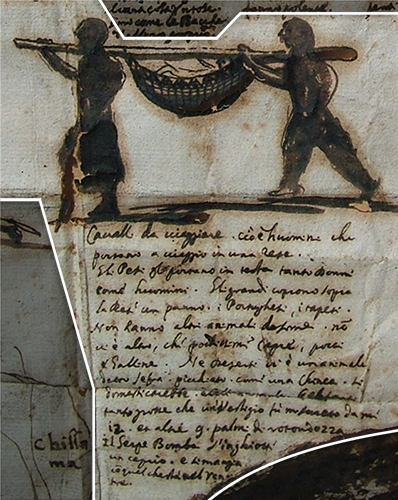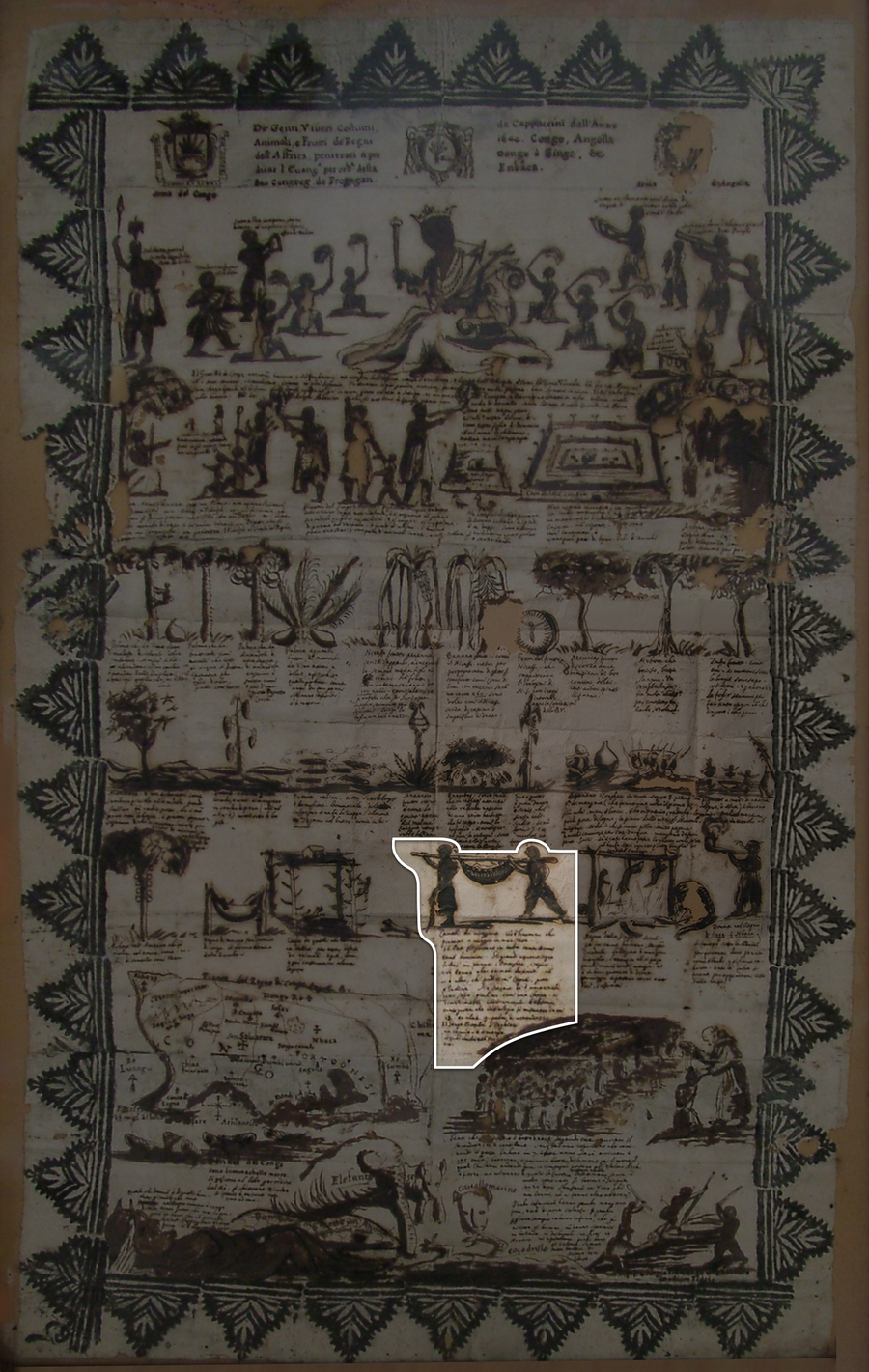Hammock travel
Cavalli da viaggiare cio é huonini che portano a viaggio in una rete. Gli Pezi gli portano in testa tanto donni comé huononi. Gli grandi coprono sopra la Retí un panno. I Portughesi, i tapeti. Non hanno altri animali da soma. Nõ vi é altro, ché pochissimí capré, porci, e galline. Ne deserti vi é un animale detto sebra. picchiato. Comé una chinea. si domesticarebbe. É bello animale. Elefanti tanto grosse che un Vestigio fú misurato da mí 12. et altrí 9. palmi di rotondezza. Il Serpe Bomba1 s’inghiotti un caprio. e si mangia cõ quel che stá nel ventre.
Horses to travel, that is to say men who they carry to travel in a net. Men as well as women carry the nets on their heads. For the great [i.e. important people] they cover the net with a cloth, for the Portuguese, a carpet. They do not have other pack animals. There is nothing but very few goats, pigs and chickens. In the deserts there is an animal called zebra [black and white] like a woodpecker similar to a donkey. Perhaps it could be domesticated. It is a very beautiful animal. Elephants so big that I measured one footprint 12 and another 9 palms in circumference. The snake Bomba swallowed up a goat, and is eaten with what it has in the stomach.
- 1Perhaps the mbumba snake, otherwise known for its spiritual significance in central Africa see John Kelly Thornton, “I am a subject of the king of Kongo: African Political Ideology and the Haitian Revolution,” Journal of World History 4 (1993): 192-93; Christina Frances Mobley, “The Kongolese Atlantic: Central African Slavery & Culture from Mayombe to Haiti” (Unpublished PhD dissertation, Duke University, 2015), chapter 5.


Add new comment